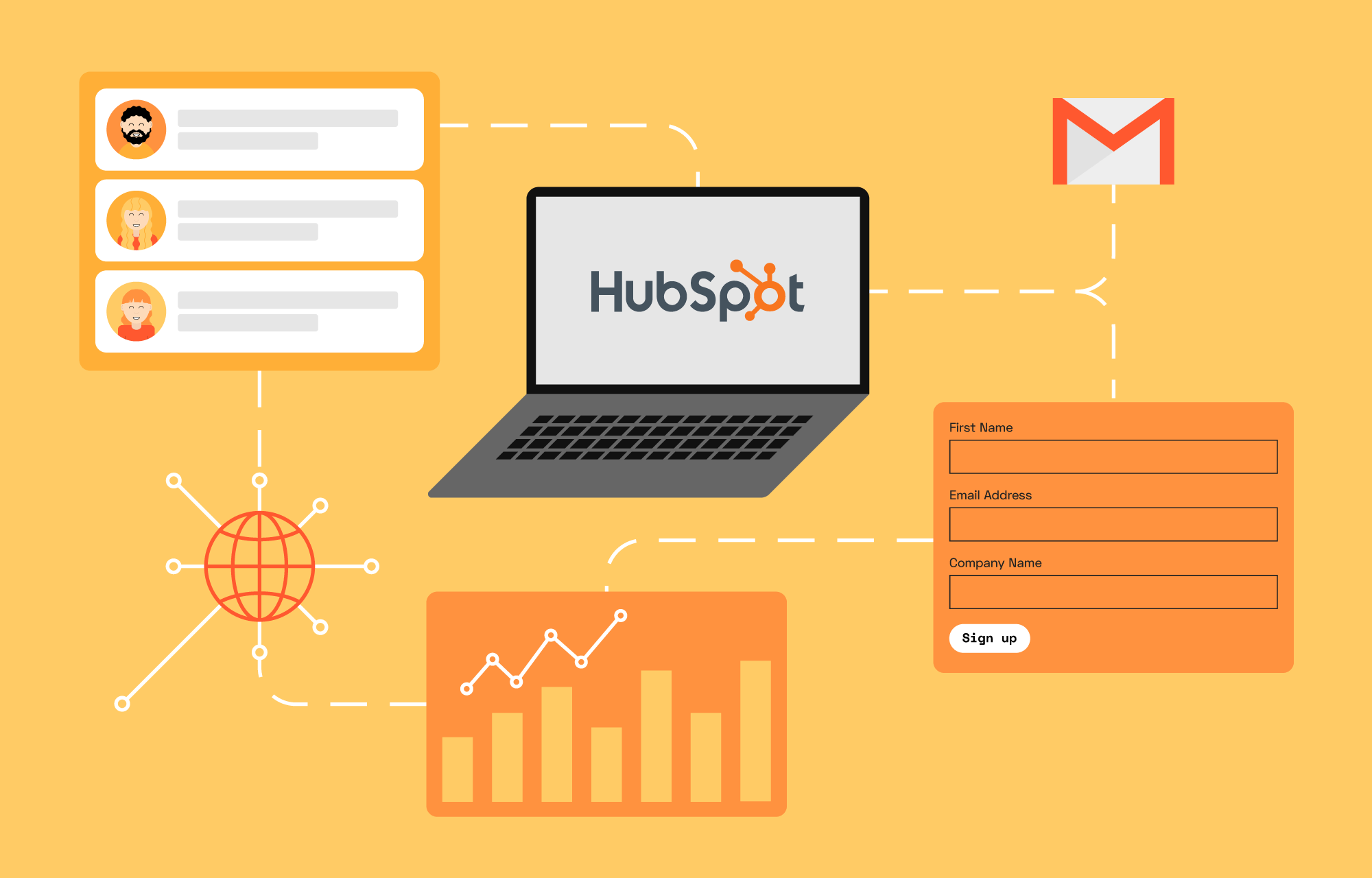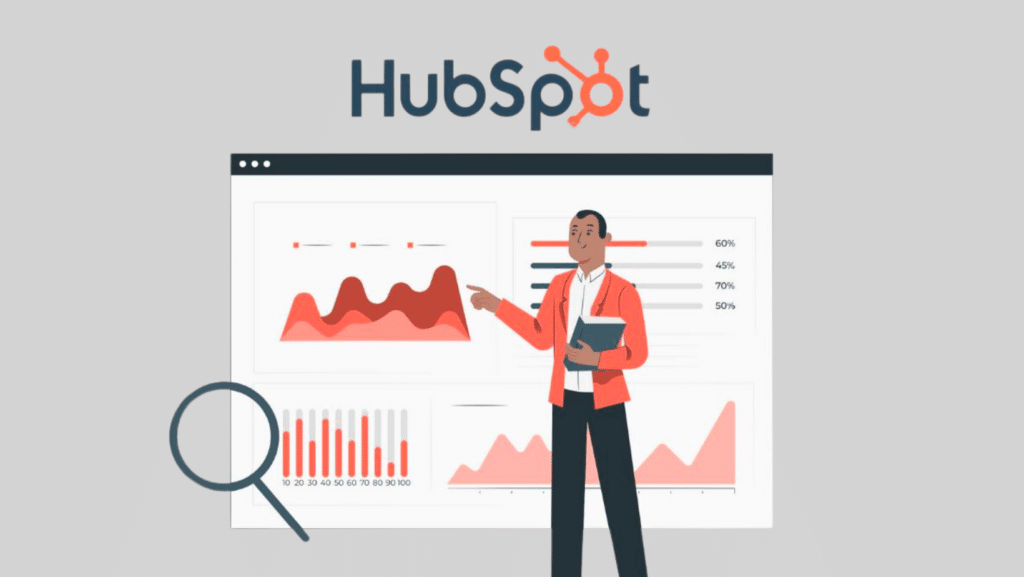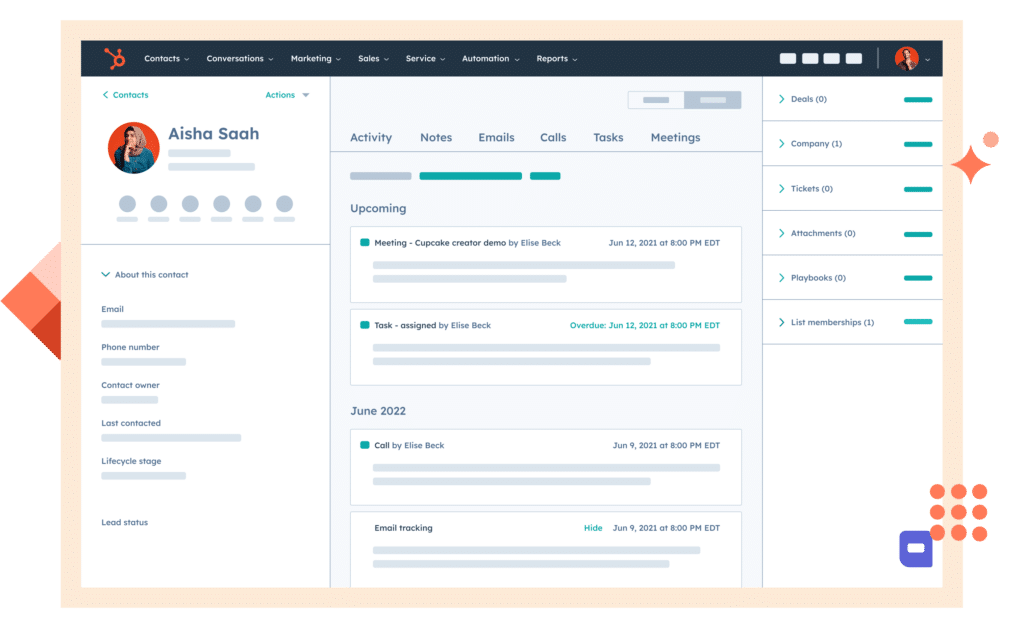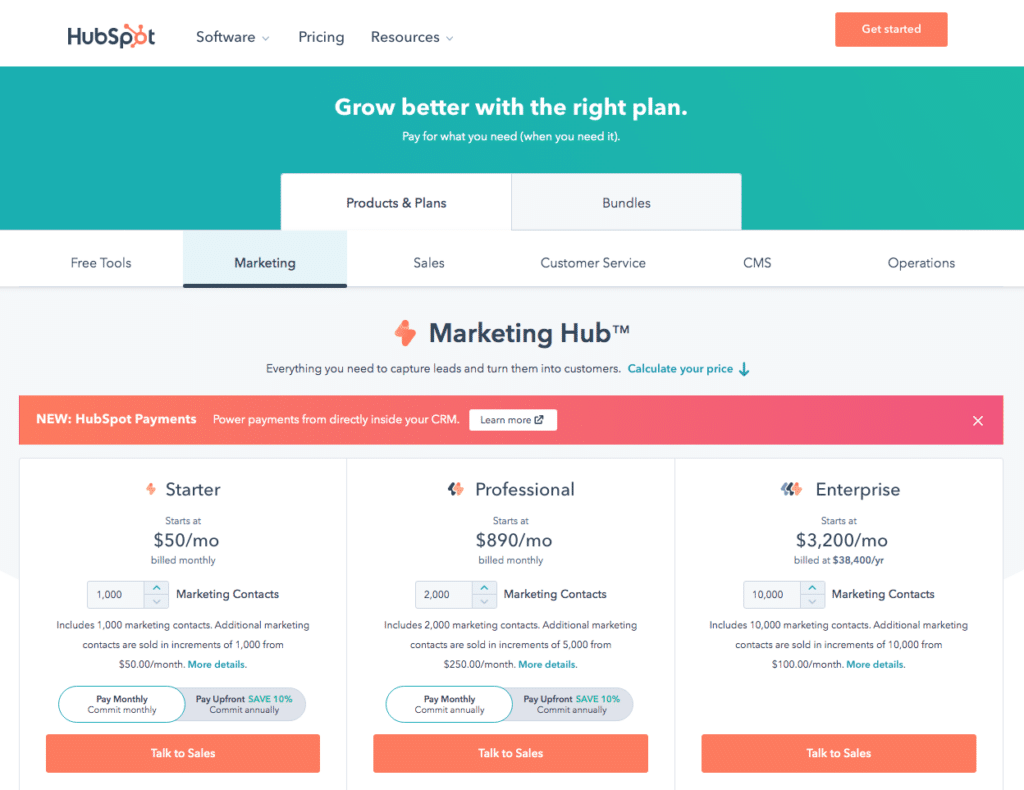
Recent articles
our mailing list
Unlocking the Power of HubSpot CRM for SME Growth

Are you an SME founder or marketer struggling to navigate the complexities of digital transformation?
Finding it challenging to generate and nurture leads effectively?
Or perhaps you’re grappling with measuring the success of your digital marketing campaigns?
These are just a few of the myriad challenges that small to medium-sized enterprises (SMEs) face in today’s competitive business landscape.
From economic uncertainty and skill shortages to the intricacies of adopting new technologies and tracking marketing performance, SMEs must overcome significant hurdles to thrive.
Customer Relationship Management (CRM) systems have become indispensable tools for businesses aiming to streamline their processes, enhance customer engagement, and drive growth. Among the myriad of CRM solutions available, HubSpot stands out as a comprehensive and user-friendly platform tailored to meet the unique needs of SMEs.

The Importance of CRM in Today's Business World
In an era where customer experience is paramount, CRM systems have become essential for businesses seeking to build strong relationships, streamline operations, and drive growth. Here’s why CRM is crucial for SMEs in today’s business landscape.
Centralised Customer Data Management
One of the primary benefits of a CRM system is the ability to centralise customer data. In the past, businesses often relied on disparate systems and spreadsheets to manage customer information, leading to inefficiencies and data silos.
A CRM system consolidates all customer data into a single, unified database, making it easily accessible to all relevant team members. This centralised approach ensures that everyone in the organisation has access to the most up-to-date information, facilitating better decision-making and more personalised customer interactions.
Benefits of Centralised Data
- Improved Data Accuracy: With all customer information stored in one place, the likelihood of data duplication and errors is significantly reduced.
- Enhanced Collaboration: Team members across different departments can access the same information, fostering better collaboration and communication.
- Streamlined Processes: Centralised data management simplifies processes such as reporting, forecasting, and customer segmentation.
What's It Like Working With Us?



Enhanced Customer Understanding and Personalisation
In today’s customer-centric business landscape, understanding and personalising customer interactions is crucial. A CRM system provides a comprehensive view of each customer, including their contact details, purchase history, preferences, and past interactions.
This wealth of information enables businesses to tailor their communications and offers to meet the specific needs and preferences of each customer, leading to higher customer satisfaction and loyalty.
Personalisation Strategies
- Segmented Email Campaigns: Use CRM data to segment your audience and send targeted email campaigns that resonate with specific customer groups.
- Personalised Recommendations: Leverage purchase history and preferences to provide personalised product or service recommendations.
- Customised Customer Journeys: Create tailored customer journeys based on individual behaviours and interactions.
Streamlined Sales and Marketing Processes
CRM systems play a vital role in streamlining sales and marketing processes. By automating routine tasks such as data entry, lead tracking, and follow-up reminders, a CRM system frees up valuable time for sales and marketing teams to focus on more strategic activities. Additionally, CRM systems provide tools for managing sales pipelines, tracking marketing campaigns, and analysing performance metrics, helping businesses optimise their sales and marketing efforts and drive better results.
Personalisation Strategies
- Lead Scoring: Automatically score leads based on their interactions and behaviours, allowing sales teams to prioritise high-potential prospects.
- Automated Workflows: Set up automated workflows to nurture leads, send follow-up emails, and trigger actions based on specific criteria.
- Campaign Tracking: Monitor the performance of marketing campaigns in real-time and adjust strategies based on data-driven insights.
Improved Customer Service and Support
Providing exceptional customer service is essential for retaining customers and building long-term relationships. A CRM system helps businesses manage customer support tickets, track customer inquiries, and monitor service performance. With a centralised view of customer interactions, support teams can quickly access relevant information and provide timely and effective assistance. This not only enhances the customer experience but also helps businesses identify and address recurring issues, leading to continuous improvement in service quality.
Enhancing Customer Support
- Ticketing System: Use a CRM-integrated ticketing system to manage and resolve customer issues efficiently.
- Knowledge Base: Create a comprehensive knowledge base to provide customers with self-service options and reduce support workload.
- Customer Feedback: Collect and analyse customer feedback to identify areas for improvement and enhance service quality.
Data-Driven Decision Making
In the age of big data, making informed decisions based on accurate and timely information is critical. CRM systems provide powerful analytics and reporting tools that enable businesses to track key performance metrics, analyse trends, and gain insights into customer behaviour. By leveraging these insights, businesses can make data-driven decisions to optimise their strategies, improve operational efficiency, and drive growth.
Leveraging Analytics
- Sales Performance: Track sales performance metrics such as conversion rates, deal velocity, and revenue growth to identify trends and areas for improvement.
- Customer Insights: Analyse customer data to understand buying patterns, preferences, and behaviours, enabling more effective targeting and personalisation.
- Marketing ROI: Measure the return on investment (ROI) of marketing campaigns to determine their effectiveness and allocate resources more efficiently.
This Blog is Part of a HubSpot Series, Check Out the Others!
Why HubSpot is the Best CRM Solution for SMEs
While there are numerous CRM solutions available in the market, HubSpot stands out as the best choice for SMEs due to its user-friendly interface, comprehensive suite of tools, scalability, cost-effectiveness, robust integration capabilities, and exceptional customer support.
User-Friendly Interface and Ease of Use
One of the standout features of HubSpot CRM is its user-friendly interface. Unlike traditional CRM systems that can be complex and difficult to navigate, HubSpot offers a clean and intuitive design that is easy to understand and use. The platform’s drag-and-drop functionality allows users to effortlessly organise and update customer data, making it accessible even to those with limited technical expertise. This ease of use ensures that businesses can quickly get up and running with HubSpot and start reaping the benefits without a steep learning curve.
Key Features of HubSpot's Interface
- Customisable Dashboards: Create custom dashboards to display key metrics and insights relevant to your business.
- Drag-and-Drop Editor: Easily build and customise forms, emails, and landing pages with a drag-and-drop editor.
- User Permissions: Set user permissions to control access to sensitive data and ensure data security.

Comprehensive Suite of Tools
HubSpot CRM provides a comprehensive suite of tools that cover all aspects of customer relationship management, including marketing, sales, customer service, and content management. The platform’s Marketing Hub includes tools for email marketing, social media management, content creation, and lead generation, helping businesses attract and engage their target audience.
The Sales Hub offers features for sales automation, pipeline management, and sales analytics, enabling sales teams to streamline their processes and close more deals. The Service Hub includes tools for customer support, ticketing, and feedback collection, ensuring that businesses can provide exceptional service and build lasting relationships with their customers. Additionally, the CMS Hub allows businesses to create, manage, and optimise their website content, enhancing their online presence and user experience.
Marketing Hub Features
- Email Marketing: Design and send personalised email campaigns with ease.
- Social Media Management: Schedule and publish social media posts, track engagement, and analyse performance.
- Lead Generation: Create and manage lead generation forms, landing pages, and calls-to-action (CTAs).
Sales Hub Features
- Sales Automation: Automate repetitive sales tasks such as follow-up emails and meeting scheduling.
- Pipeline Management: Visualise and manage your sales pipeline to track deals and forecast revenue.
- Sales Analytics: Access detailed sales reports and analytics to monitor performance and identify opportunities for improvement.
Service Hub Features
- Ticketing System: Manage customer support tickets and track resolution times.
- Customer Feedback: Collect and analyse customer feedback to improve service quality.
- Knowledge Base: Create a self-service knowledge base to provide customers with helpful resources.
CMS Hub Features
- Website Builder: Build and customise your website with a user-friendly drag-and-drop editor.
- SEO Tools: Optimise your website for search engines with built-in SEO tools and recommendations.
- Content Management: Manage and organise your website content with ease.
Scalability and Flexibility
HubSpot is designed to grow with businesses, making it an ideal solution for SMEs with ambitious growth plans. The platform’s modular structure allows businesses to start with the tools they need and add more features as they scale. HubSpot’s flexibility ensures that businesses can customise the platform to meet their unique requirements and adapt to changing market conditions. Whether a business is just starting out or expanding rapidly, HubSpot provides the scalability and flexibility needed to support its growth.
Customisation Options
- Custom Properties: Create custom properties to capture and store unique data points relevant to your business.
- Workflows: Set up custom workflows to automate processes and improve efficiency.
- Integrations: Connect HubSpot with other tools and systems to streamline your workflows and enhance functionality.
Cost-Effective Solution
For SMEs with limited budgets, HubSpot offers a cost-effective solution with its free CRM and affordable pricing plans. The free CRM provides essential features for managing customer relationships, while the paid plans offer advanced tools and capabilities. By consolidating multiple tools into a single platform, HubSpot helps businesses save on software costs and reduce the total cost of ownership. This cost-effectiveness makes HubSpot an attractive option for SMEs looking to maximise their return on investment.
Cost-Effective Solution
- Free CRM: Access essential CRM features at no cost, including contact management, deal tracking, and email marketing.
- Starter Plan: Upgrade to the Starter Plan for additional features such as email automation and custom reporting.
- Professional Plan: The Professional Plan offers advanced tools for marketing automation, sales enablement, and customer service.
- Enterprise Plan: The Enterprise Plan provides enterprise-level features for large organisations with complex needs.

Robust Integration Capabilities
HubSpot CRM integrates seamlessly with a wide range of third-party applications, including email marketing tools, social media platforms, e-commerce solutions, and more. This integration capability allows businesses to streamline their workflows and improve overall efficiency by connecting HubSpot with their existing tools and systems. Additionally, HubSpot’s open API enables businesses to develop custom integrations tailored to their specific needs, further enhancing the platform’s flexibility and functionality.
Popular Integrations
- Email Marketing: Integrate with popular email marketing tools such as Mailchimp and Constant Contact.
- E-commerce: Connect with e-commerce platforms like Shopify and WooCommerce to sync customer and order data.
- Social Media: Integrate with social media platforms such as Facebook, Twitter, and LinkedIn to manage and track social media activities.
Exceptional Customer Support and Resources
HubSpot is renowned for its exceptional customer support and extensive resources. The platform provides a wealth of educational materials, including webinars, tutorials, and certification courses through HubSpot Academy. These resources help businesses maximise the benefits of HubSpot and ensure that their teams are well-equipped to use the platform effectively. Additionally, HubSpot offers dedicated support through phone, email, and live chat, ensuring that businesses can get the assistance they need when they need it. This commitment to customer success sets HubSpot apart from other CRM solutions and makes it a trusted partner for SMEs.
HubSpot Academy
- Webinars: Attend live and on-demand webinars on a variety of topics, from inbound marketing to sales strategies.
- Tutorials: Access step-by-step tutorials to learn how to use HubSpot’s features and tools.
- Certification Courses: Enrol in certification courses to gain in-depth knowledge and demonstrate your expertise in HubSpot.
Customer Support
- Phone Support: Get assistance from HubSpot’s support team via phone.
- Email Support: Reach out to HubSpot’s support team via email for help with any issues or questions.
- Live Chat: Use the live chat feature to get real-time support from HubSpot’s customer service team.
How to Implement HubSpot CRM in Your SME
Implementing a CRM system like HubSpot is a strategic decision that requires careful planning and execution. Here’s a step-by-step guide to help SMEs successfully implement HubSpot CRM and unlock its full potential.

Assessing Your Business Needs
Before implementing HubSpot CRM, it’s crucial to assess your business needs and objectives. Identify the key areas where you need improvement, such as lead generation, customer service, or sales automation. Understanding your specific requirements will help you tailor HubSpot to meet your unique needs and ensure a successful implementation.
Key Considerations
- Business Goals: Define your business goals and objectives to determine how HubSpot can help you achieve them.
- Current Challenges: Identify the challenges and pain points you are currently facing in your sales, marketing, and customer service processes.
- Team Requirements: Consider the needs and requirements of your team members to ensure they have the tools and resources they need to succeed.
Setting Up Your HubSpot Account
Once you’ve identified your business needs, the next step is to set up your HubSpot account. Start by signing up for a free account or selecting a paid plan that aligns with your requirements. Follow the onboarding process to configure your account settings, import your customer data, and integrate your existing tools and systems.
Onboarding Process
- Account Configuration: Set up your account settings, including user permissions, custom properties, and integrations.
- Data Import: Import your customer data from existing systems, such as spreadsheets or other CRM platforms.
- Tool Integration: Connect HubSpot with your existing tools and systems to streamline your workflows and enhance functionality.
Customising HubSpot for Your Business
HubSpot offers a range of customisation options to help you tailor the platform to your business needs. Customise your CRM by creating custom properties, setting up workflows, and configuring your sales pipeline. Additionally, personalise your marketing and sales tools by creating custom email templates, landing pages, and reports.
Customisation Tips
- Custom Properties: Create custom properties to capture and store unique data points relevant to your business.
- Workflows: Set up custom workflows to automate processes and improve efficiency.
- Email Templates: Design custom email templates to ensure consistent branding and messaging in your email campaigns.
Training Your Team
To ensure a smooth transition to HubSpot, it’s essential to train your team on how to use the platform effectively. Take advantage of HubSpot’s extensive resources, including webinars, tutorials, and certification courses, to educate your team on the platform’s features and best practices. Providing ongoing training and support will help your team maximise the benefits of HubSpot and ensure a successful implementation.
Training Resources
- Webinars: Attend live and on-demand webinars to learn about HubSpot’s features and best practices.
- Tutorials: Access step-by-step tutorials to guide your team through the platform’s tools and functionalities.
- Certification Courses: Enrol in certification courses to gain in-depth knowledge and demonstrate your expertise in HubSpot.

Monitoring and Optimising Your CRM
After implementing HubSpot, it’s important to continuously monitor and optimise your CRM to ensure it meets your business needs. Regularly review your performance metrics, analyse your data, and make adjustments to your workflows and processes as needed. By continuously optimising your CRM, you can ensure that it remains a valuable tool for driving growth and improving customer relationships.
Optimisation Strategies
- Performance Metrics: Track key performance metrics to monitor the effectiveness of your sales, marketing, and customer service efforts.
- Data Analysis: Analyse your data to identify trends, patterns, and areas for improvement.
- Workflow Adjustments: Make adjustments to your workflows and processes based on data-driven insights to enhance efficiency and effectiveness.
To Wrap Up
CRM systems have become essential tools for businesses looking to manage their customer relationships, streamline their operations, and drive growth. Among the various CRM solutions available, HubSpot stands out as the best choice for SMEs due to its user-friendly interface, comprehensive suite of tools, scalability, cost-effectiveness, robust integration capabilities, and exceptional customer support. By leveraging HubSpot CRM, SMEs can unlock the full potential of their customer relationships and achieve their business goals.
By understanding the importance of CRM in today’s business world and recognising the unique advantages of HubSpot, SMEs can make informed decisions about their CRM strategy and choose a solution that best meets their needs. With HubSpot, businesses can build stronger customer relationships, enhance their marketing and sales efforts, and drive sustainable growth in an increasingly competitive market.
Ready to transform your business and drive growth with a powerful CRM system? Speak to an expert at Sydney Digital Marketing Agency today, to learn how HubSpot CRM can help you manage your customer relationships, streamline your operations, and achieve your business goals. Let’s unlock the full potential of your business together!

Article by
Simon Gould
CEO / Founder / Dad
Founder and leader, Simon established SDM back in 2012. Since then, he has helped 150 clients (and counting) to achieve their digital goals.[…]




